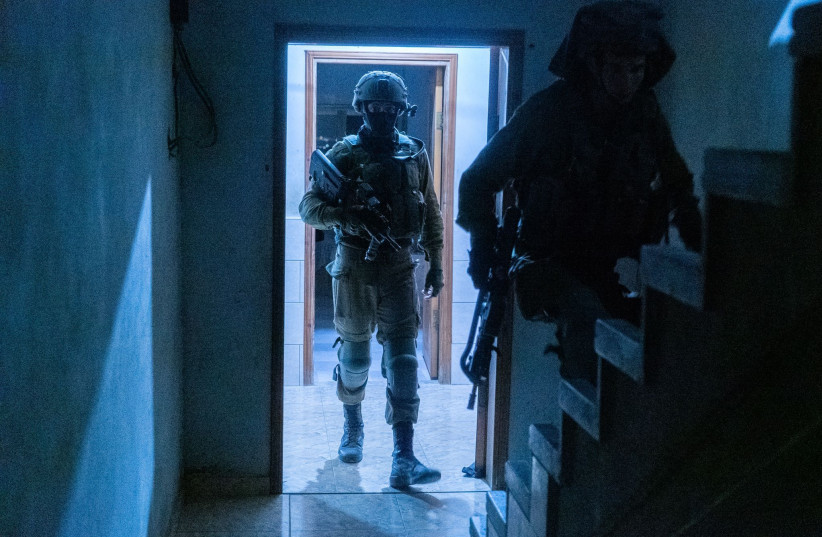Over 1,100 Palestinian family members related to terrorists have been denied by the IDF from entering Israel since the wave of terror attacks began a month and a half ago.
“We will not allow the families of terrorists who chose to carry out attacks to enter Israel for employment and trade,” a senior officer said. “Every Palestinian who carries out an attack has to know that he is doing something that will affect his family.”
The revoking of the permits and denial to enter Israel to pray at al-Aqsa mosque as well as receive medical care will mainly affect the immediate family of terrorists, including grandparents and cousins.
“Punishing a clan is an extreme step,” he said, explaining that a clan can have thousands of members.
The defense establishment took a while to take such steps “because we do not want to do things without thinking,” the senior officer told journalists, adding that the military “does not like collective punishment, and we do not like to drag the whole population into such situations.”

But, because of the ongoing terror attacks, the decision was made to revoke permits because it is an “effective tool” to deter possible terrorists from carrying out attacks against Israeli civilians and security forces.
The revocation of entry permits can be in effect for years, but the senior officer told journalists that the situation is reviewed periodically.
Tensions have been high in the West Bank and Israel following a spate of deadly attacks that have killed 19 Israelis since March.
According to data released by the military, 124 family members of 18 year-old Mu’atassim Atallah from Bethlehem who attempted to carry out an attack in Tekoa on Sunday had their permits revoked.
The permits of 215 family members of 19-year-old As’sad al-Rafai and 20-year-old Emad Subhi Abu Shqeir, who carried out the deadly attack in Elad had their entry permits revoked. The permits of 215 family members of Samih Assi and Yahya Marei who carried out the attack in Ariel had their permits revoked.
In order to bring the current wave of violence to an end, the IDF, Shin Bet, and police have been focusing their sights on the northern West Bank and the Palestinian cities of Jenin, Nablus, Hebron and Tulkaram and their surrounding villages.
They expect to further increase their operations in the area to deter attacks and arrest potential terrorists.
Due to the tensions, the military reinforced troops in the West Bank with thousands of troops from 26 combat battalions, including special forces from Commando units as part of its Operation Break the Wave.
More than 1,000 Palestinians have been arrested by security forces since the beginning of the year – over 250 of them were arrested since Operation Break the Wave began. In comparison, last year a total of 2,288 Palestinians were arrested, already a small increase from the 2,277 Palestinians arrested in 2020.
The sharp increase in arrests is due to the IDF’s orders to arrest any Palestinian involved in terror, including those involved in smuggling weapons. Security forces have confiscated about 130 different kinds of weapons since the beginning of the year, including over 30 since the end of March.
The IDF imposed a general closure on the West Bank and Gaza Strip last week during Memorial and Independence Day. It was later extended after the deadly attack in Elad.
Last week, police announced a large-scale operation to arrest Palestinians who are illegally residing in Israel. The operation, led by the Border Police, would see thousands of police officers locate and arrest Palestinians who do not have an entry permit.
There are some 150,000 Palestinians who entered Israel legally from the West Bank and, according to some estimates, another 30,000 cross through holes in the West Bank fence each day to work.
